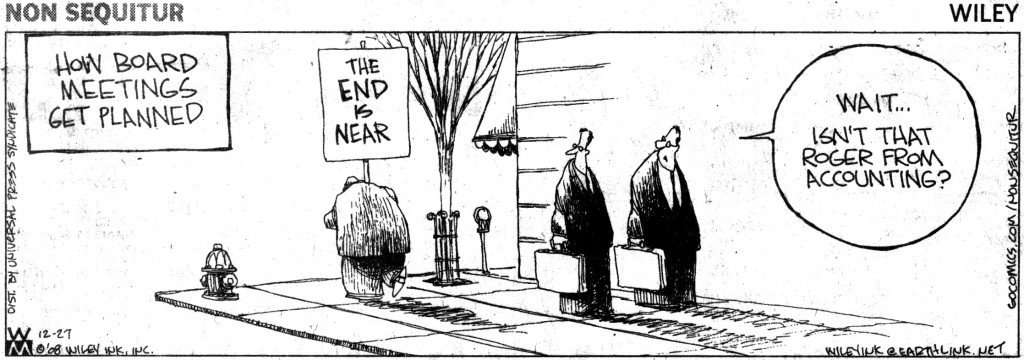About Hope
by Tom Lewis, The Daily Impact -- Chronicling the Crash of the Industrial Age, February 2011
“I feel a lot better, since I gave up hope.”
It was a throwaway line in a novel I read somewhere, but it has become my mantra. Let me explain.
Our society honors hope. Our president celebrates the audacity of hope. And the hope that sustains one against long odds, in the quest for a far-off goal, can be a good thing. But inappropriate hope is not a good thing.
A young man may wish he had a date with Angelina Jolie, and there’s nothing wrong with that — imagining what your friends would say, how your fellow workers would change their attitudes, what it would be like sitting across the table from a goddess. But let that daydream turn to hope — burning, constant, all-consuming hope — and pretty soon our audacious young man is a stalker hanging around her house and following her to the mall. That is inappropriate hope, and he’ll feel (and do) a lot better when he gives it up.
We (and by we, I mean we who live in industrialized society) are enjoying a life of luxury unprecedented in history. All but the poorest among us enjoy access to food, water, shelter, energy, transportation and entertainment undreamed of by yesterday’s kings, shahs, czars and presidents. We who enjoy the life hope it continues. Those who do not yet have the life — the rising masses of China and India, for example — hope to have it very soon.
But the massive industrialization on which this luxury rests has a delayed, cumulative cost about to be collected. The economies of scale sought and achieved so assiduously over the decades have a dark twin — concentration of risk. The bigger the factory, farm or city, the denser the population, the more susceptible it is to disaster. If the factory only runs on oil and the oil runs out; if the farm only grows wheat and a wheat disease runs rampant; if an earthquake hits the city; what might have been a minor setback for a smaller, sustainable and diverse enterprise is fatal to the overgrown dinosaur.
Do you doubt the accumulation of these risks? A quick tour of the points I made in detail in my book Brace for Impact:
- For every ton of food or fiber produced by industrial agriculture in the United States, an average of seven tons of topsoil has been lost to wind and water. This is not the arithmetic of hope.
- Over-fertilization of farm fields and lawns, along with inadequate treatment of sewage, has poisoned our waterways and created huge dead zones in all out estuaries.
- Confinement, force-feeding and mistreatment of food animals has sickened the animals, contaminated the food and created superbugs and toxins that endanger the human population.
- Peak oil — the moment of maximum possible extraction of oil, followed by an inevitable and irreversible decline, is here. No agency of our government, no leader of our people, has admitted it or has begun work to avert the certain disaster that is about to begin.
- Our aquifers — the only water safe from the pollution mentioned above — are being exploited for agriculture and development without concern for their limits. The Ogallala Aquifer, for example, that underlies the north-central United States, is fossil water deposited by glaciers that is replenished by rain at a rate of fractions of an inch per year. We are extracting it at rates of many feet per year.
In the face of these rising, vast and ominous threats we as a country have no awareness, no discussion and no plan. In other words, no hope.
And yet there is this. While it is not now possible to save everybody, to save the society from collapse, it is not only possible but relatively simple to save any one of us, or any family or community or clan of us, that chooses right now to live sustainably. We know how to produce our own food, clothing, shelter and energy without degrading the web of life that sustains us and all creatures. All it requires is work. And giving up the life of luxury.
We stand on the deck of the Titanic, watching the bow going down, hearing the water rushing in. We have asked the crew what they’re going to do about it and they have promised us a full refund of the price of our ticket. We have seen on the afterdeck some lifeboat kits, small craft that could be assembled and launched in a short time by anyone willing to do the work.
Most of us, however, will wander back in to the all-you-can-eat buffet (better hurry, the floor is tilting rather crazily), pour another drink, rearrange some deck chairs and turn on the television. And hope things turn out all right.
That is called natural selection. And that is why I feel so much better now that I have given up hope.
– The Editor








One of the responses to About Hope and Tom Lewis' reply.
maintaining productive morale for useful campaigning seems to me to require going further, and eschewing hope as a motivator for action.
and with my regards,
http://www.dailyimpact.net/about/